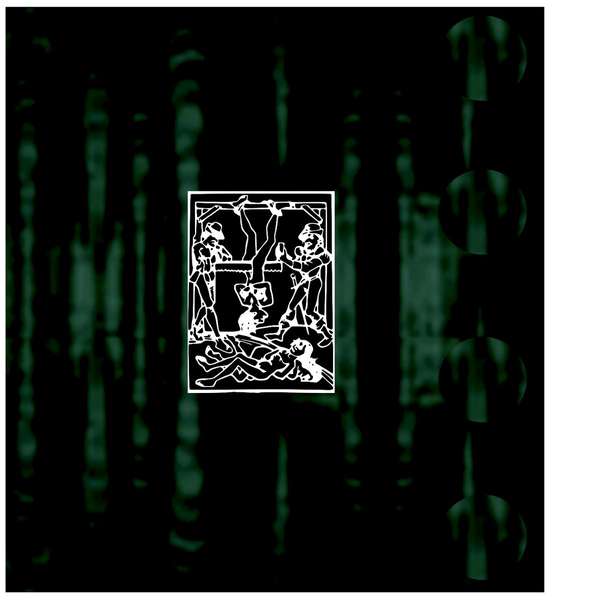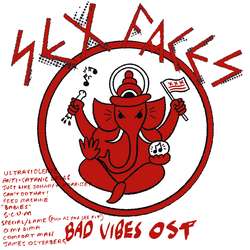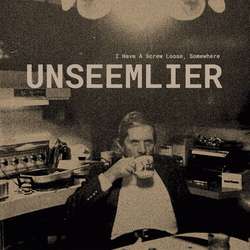Replacing God by ultra-prolific Kansas-based experimental musician Twin Towers at times seems to be an experimental metal album, but there's much more to the work and I think it has a nice sense of progression as it moves forward. By the end, you feel like you've experienced something.
The opening track is rather ominous. Starting off with a somewhat ambiguous bit of keyboard, it suddenly morphs into a noisy cacophony of static and gurgling undertones. "Wretched Communion" is arguably the album's most chaotic track in which guitars initially chug away over a relentless and frenetic rhythm. By the end, the track has lessened in intensity and become more atmospheric, with eerie synth lurking below the surface.
"III" is more a lower key mood piece, one that establishes a pattern for the album: a more rowdy and noisy track is followed by a quieter, more reflective one. I think the formula winds up working out for the better. "III" eventually churns its way into a climax of buzzing and swirling tones, and follow-up "IV: Harbor of Teeth" quickly builds towards a main section of snarling guitar and steady rhythm with more playful guitar work featured down the stretch.
"V" is a comparatively relaxed if unsettling ambient synth piece that serves as a moment of respite before the more metal-oriented "VI: Symptoms of Youth" which finds understated but screeching guitar operating behind steady percussion. All the while, buzzing electronic effects create an atmosphere of uneasiness. The mood becomes more serene on the subsequent track, one that reminds me quite a bit of Aphex Twin's '90s-era ambient work due to its airy melody and upbeat percussion. There's a sense of apprehension to the track as well, and it segues nicely into "VII: The Adjustment Pact," a piece that suggests a conversation or back-and-forth exchange in its guitar interplay.
"IX" reminds me of the soundtrack to a horror movie, with a ringing alarm-like tone heard over pulsing electronic work. Listening to it, you just expect something bad to happen, but finale "X:Zavkhanmandal" winds up being a hopeful and maybe even transcendent closer.
There's a lot going on in the audio mix on this album. On repeat listens, you notice things you hadn't before, although one of the issues with this work is I think it would be difficult to get many listeners to give it a shot in the first place. Experimental music is kind of a hit or miss proposition: there's a crowd out there that "gets" it, but most people, and certainly the mainstream, simply would rather have more immediately accessible, instant gratification type of music. Replacing God is a worthwhile album. Whether or not any individual listener spends the necessary time with it to appreciate what it's trying to do is a different issue.




